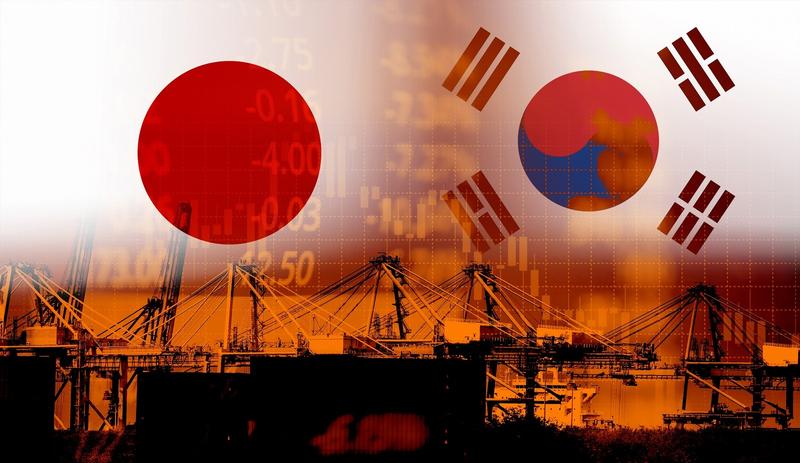Samsung cannot be overthrown, and its economic growth rate is not as high. Japan will be poorer than South Korea in the future Series: Yukio Noguchi's Essence of Digital Innovation | FinTech Journal
Information media for the future of finance
Powered byLogin
E-mail newsletter registration
Business + ITEvents / seminars
Special
Business + IT
Samsung cannot be overthrown, and its economic growth rate is not as high.Japan will be poorer than South Korea in the future
Series: Yukio Noguchi's essence of digital innovation
About 10 years ago, "Overthrow Samsung" was shouted. At that time, the appreciation of the yen, which was said to be a burden on the Japanese manufacturing industry, changed drastically. However, Samsung could not be defeated. Although South Korea's economic growth rate is declining, it is still higher than Japan. This situation will continue, and South Korea is expected to become a richer country than Japan. Why did this happen?
Written by Yukio Noguchi
Written by Yukio Noguchi
Born in Tokyo in 1940. Graduated from the Faculty of Engineering, University of Tokyo in 1963. In 1964, he joined the Ministry of Finance. In 1972, he received his Ph.D. in Economics from Yale University. He has served as a professor at Hitotsubashi University, a professor at the University of Tokyo (Director of the Center for Advanced Economic Engineering), a visiting professor at Stanford University, and a professor at Waseda University Graduate School of Finance. He is an emeritus professor at Hitotsubashi University. note account: https://note.com/yukionoguchi Twitter account: @ yukionoguchi10 Noguchi homepage: https://www.noguchi.co.jp/
- "Overthrow Samsung" could not be realized
- South Korea's growth rate is declining but still high
- The structure that "Japan's growth rate is low and South Korea is high" will continue in the future.
- South Korea overtakes Japan in GDP per capita in 2040
- Problems with South Korea's economic structure: Dependence on foreign demand
"Overthrow Samsung" could not be realized
In 2010, Panasonic president Fumio Otsubo contributed an article "The secret plan of my" overthrow Samsung "" to "Bungei Shunju". Among them, five points were cited as the reasons why the Japanese manufacturing industry did not behave. One of them was the strong yen and the other was corporate tax. These are what many Japanese managers at the time said, not just Mr. Otsubo. In other words, the problem is not that the business content and business model are not adapting to changes in the world, but that the economic environment and government policies are the problem. Ten years later, things have changed a lot. The exchange rate has depreciated significantly. The factors that the management at that time cited as one of the "five great pains" have changed. On the other hand, South Korea's real effective rate has increased. In particular, the won has increased significantly since around 2013, when the yen depreciated significantly due to Abenomics. The situation has changed with regard to corporate tax. The tax rate, which was 30% at the time, has been reduced to the current 23.2%. In this way, the situation is what Mr. Otsubo wanted, so the Japanese manufacturing industry should be revived. So what happened in reality? Could Panasonic defeat Samsung? Currently, Samsung is ranked 15th in the world ranking with a market capitalization of $ 437.2 billion. On the other hand, Panasonic has a market capitalization of $ 25.6 billion, which is one-seventeenth that of Samsung. It is 776th in the world ranking. There was such a big difference. During this period, the relative relationship between Japan and South Korea in terms of GDP also changed. In 2010, Japan's GDP (nominal GDP converted to market exchange rate) was $ 5.8 trillion, about five times that of South Korea's $ 1.1 trillion. In 2021, Japan was $ 5.1 trillion and South Korea was $ 1.8 trillion, and the ratio between Japan and South Korea shrank to 2.8 times (Japan's value decreased because of the weak yen).South Korea's growth rate is declining but still high
South Korea has continued to grow at a high rate. However, it has been pointed out that the growth rate is slowing down. South Korea's high growth has been driven by trade, but it is believed that the growth of such patterns has reached its limit. Indeed, looking at the data, we can see that the growth rate is gradually declining. Looking at the annual growth rate of real GDP denominated in the home currency, high growth of 5% to 10% continued in the 1990s. Even in the 2000s, it grew by about 5%. It has gradually declined to around 3% since 2010. And it is in the 2% range in 2018 and 2019. However, the growth rate in the 2% range is higher than in Japan. It is comparable to the developed countries of the world. The Korean economy also performed well during the Corona period. It is true that GDP growth in 2020 was negative. However, according to the IMF (International Monetary Fund) WEO (World Economic Outlook), the growth rate will be + 4.3% in 2021. It will be 3.3% in 2022. Thus, real GDP in 2022 will increase by 6.8% compared to 2019. And in 2023, it will be about 9.8% higher than in 2019. This is quite different from the situation in Japan. In Japan, negative growth will occur in 2020, and even in 2021, real GDP will be 2.4% less than in 2019. By 2022, it will only increase by 0.8% from 2019. In this way, South Korea is showing good economic performance even under the corona. Although the growth rate is declining, it is still at a high level. [Next page] The structure that "Japan's growth rate is low and South Korea is high" will continue in the future.Topics
To List
IT introduction support information
PR
SB Creative Co., Ltd.
By registering as a business + IT member, you can subscribe to member-only content and e-mail newsletters, and invite you to special seminars!
















